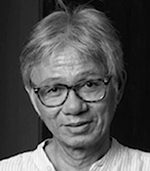SUMMARY
This is AI generated summarization, which may have errors. For context, always refer to the full article.
![[OPINION | Newspoint] Continuing martial law without continuing rebellion](https://www.rappler.com/tachyon/r3-assets/612F469A6EA84F6BAE882D2B94A4B421/img/F78D3BAEB3494DBABE0D71C3047B597F/np-22-copy.jpg)
 For more than a year and a half now, in the largest of our 3 main islands, the most ominous anomaly of our time has been playing itself out: a continuing martial law without the continuing rebellion to justify it.
For more than a year and a half now, in the largest of our 3 main islands, the most ominous anomaly of our time has been playing itself out: a continuing martial law without the continuing rebellion to justify it.
The basic, inherent danger lies in the suspension of all recourse from arbitrary arrest and detention, but further dangers proceeding from it could be anyone’s worst nightmare.
Martial law came down on all of Mindanao on May 23, 2017, as President Rodrigo Duterte sent out his troops against a band of native Moro rebels, Abu Sayyaf outlaws, and locals linked supposedly to ISIS, the terrorist network of Middle Eastern origin. No hard evidence establishing this 3rd component existed, but, ISIS being today an acknowledged world scourge, it has as well become a bogeyman for any regime looking to rule by fear.
Duterte himself used it to reinforce his case for martial law in lieu of the continuing rebellion that the Constitution stipulates as the only acceptable justification. And, sure enough, his captive Congress and the Supreme Court, which itself in general had favored his interests in its rulings, bought it.
Duterte’s martial law has been in fact a self-compounding anomaly, making its retention even more questionable and frightening. The conflict that had prompted it was actually contained within a mere section of the city of Marawi – not within the entire city even, let alone the entire island. Also, the enemy numbered only between 50 and 200, although the estimate rose as the need arose for the military to justify further extreme action, like bombing from the air.
After 5 months the battle site, once a lively community, lay in desolate ruins, and it has remained in that uninhabitable state since Duterte declared a triumphant end to the conflict more than a year ago. Martial law, meanwhile, has been extended 3 times from its original 60-day term: first, up to the end of 2017, then until the end of 2018, and now through all of 2019.
Indeed, it stands as a spectacular irony in the face of Duterte’s boasts of peace and economic gains for postbellum Mindanao. Anyway, he only has to switch narratives as the need for martial law comes up for reassessment. And so, all too suddenly, the communists and the Abu Sayyaf are back in business.
Although around since the ’60s as a genuine rebel movement, the communists have proved capable only of intermittent, not continuing, operation. The Abu Sayyaf, on the other hand, is only a local gang, as such engaged only in brigandage, not rebellion, and operating only in some parts of the south.
In fact, by passing a law conceding a considerable measure of political and economic autonomy to the Moro separatists of Mindanao, the government, concomitantly, should have gotten itself a potent partner in peacekeeking in that part of the country, and, consequently, there should have been even less reason for martial law.
And since no sense can be made of all these pretexts, some insidious plot must be afoot here. Which just has got to be when characters like Rodrigo Duterte, Gloria Macapagal Arroyo, Joseph Estrada, and the Marcoses come together – 3 presidents and the heirs of a 4th whose regimes have been marked by plunder, among other excesses.
Don’t be distracted by the current pork barrel fight between some of Duterte’s and Arroyo’s lieutenants and cronies; they’re bound in time to strike a compromise and reset themselves for the gang’s ultimate end: perpetuation in power in order to avoid jail.
A vital intermediate goal is a vote in the midterm polls in May that will guarantee the gang a solid majority in both houses of Congress. As it is, while the Senate may have been generally cooperative, it dithers on the issue of federalism.
Among more thoughtful and non-partisan observers and critics, the opposition to a switch from the unitary government in existence since independence in 1946 to the proposed federal one is driven by fears of a further entrenchment of political dynasties, like, precisely, the Dutertes, the Arroyos, the Estradas, and the Marcoses. But the Senate’s ambivalence appears nothing to do with oversight zeal; rather, it’s tainted by a sense of self-preservation agitated by fears that a nationally elected Senate, such us the present one, has no place in the federal scheme of things.
But how serious, really, is Duterte and his gang about federalism? I say again that, given their all-too-obvious predisposition to operate outside the rule of law, federalism is a mere ruse, a false destination, although a key element still of their plot. I see ourselves being hijacked along the way by the Duterte gang, constituting itself as the Transitory Committee that decides the terms of transition, which it can choose to drag out or forget about altogether.
The midterm vote is the decisive beachhead, and Mindanao is the decisive territory. But how can an election conducted under martial law in Duterte’s own home region be free or fair at all? The chill alone that the emergency naturally sends across the island tilts the vote in his gang’s favor. Not to forget: it was the fraudulent Mindanao vote that made Gloria Arroyo president – and those yet were normal times.
The precedents are simply too compelling: once the midterm beachhead is breached, our descent into authoritarianism becomes inexorable, fulfilling Duterte’s express desire to put the entire nation under martial law. – Rappler.com
Add a comment
How does this make you feel?
There are no comments yet. Add your comment to start the conversation.